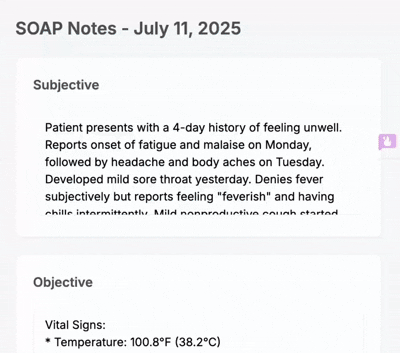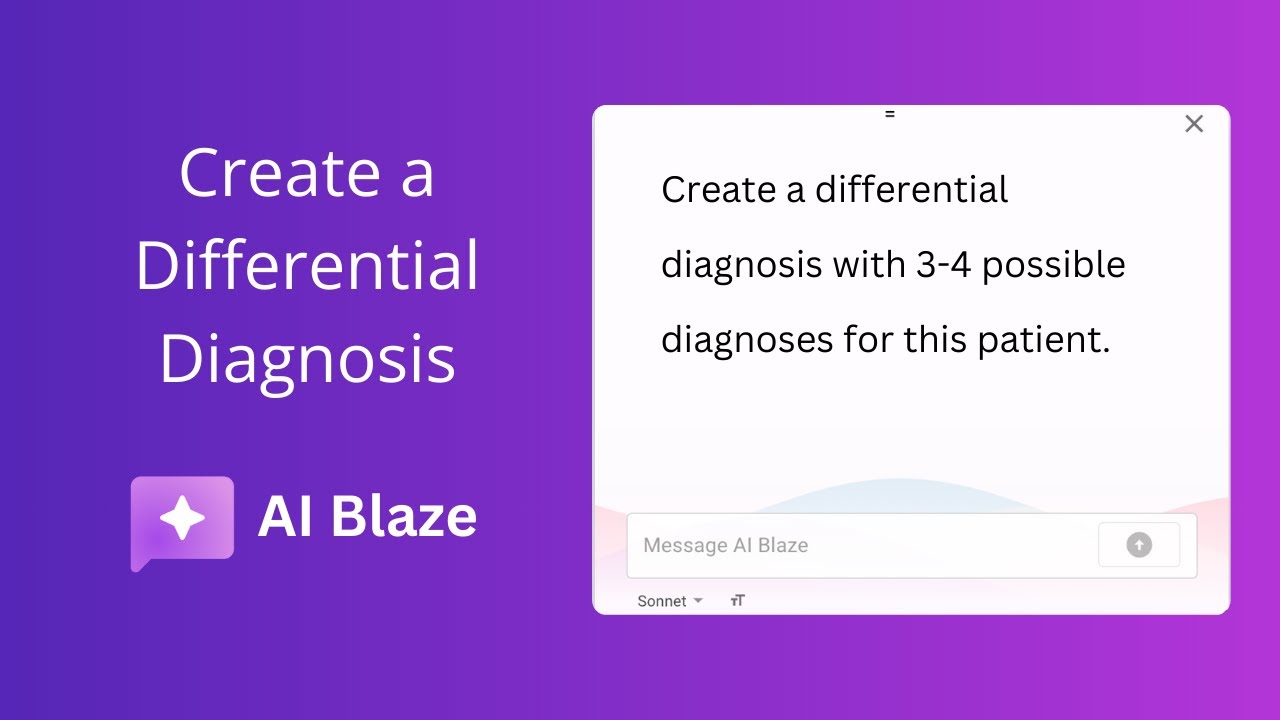Hey everyone ![]()
Did you know that you can use AI Blaze for much more than just taking notes?
For example, AI Blaze can help you create a differential diagnosis, then ask questions to help you confirm which diagnosis is correct! ![]()

With AI Blaze, you can:
- Analyze symptoms to create a unique differential diagnosis in seconds
- Ask follow-up questions to help you rule out or confirm diagnoses
- Analyze information to help you reach your final diagnosis
- Much more!
If you haven’t yet, please give AI Blaze a try and let us know what you think. ![]()
Give this prompt a try ![]()
Act as an evidence-based medical reasoning assistant. Integrate medical knowledge, cite high-quality sources where relevant, and explicitly flag red-flag findings.
Generate a list (3–4) of the most plausible differential diagnoses. For each diagnosis include:
- Why it is plausible
- Key positives
- Key negatives
- Red flags / referrals
- 1 reference
- Confirmation strategies: at least 1 high-value special test or measure and ≥1 pointed history question
- Exclusion strategies: what result or finding would effectively rule it out
- Present each diagnosis as a numbered list
- At the top, put 'DIFFERENTIAL DIAGNOSIS' in bold
DOs & DON'TS
DOs
- Consider both common and serious conditions
- Include relevant anatomical and pathophysiological reasoning
- Prioritize diagnoses based on clinical presentation and risk
- Use recent, peer-reviewed sources when citing references
- Always include "red flag" symptoms that require immediate referral
- Consider patient demographics, mechanism of injury, and timeline
DON'TS
- Don't provide medical advice or treatment recommendations
- Don't dismiss serious conditions even if they seem unlikely
- Don't use outdated or non-evidence-based information
- Don't overlook the need for imaging or specialist referral when indicated
- Don't assume diagnosis without proper clinical correlation
- Don't provide differential diagnoses without sufficient clinical information
